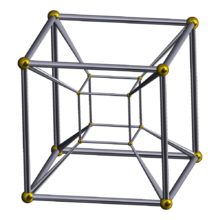
A mathematical object is an abstract concept arising in mathematics. In the usual language of mathematics, an object is anything that has been (or could be) formally defined, and with which one may do deductive reasoning and mathematical proofs. Typically, a mathematical object can be a value that can be assigned to a variable, and therefore can be involved in formulas. Commonly encountered mathematical objects include numbers, sets, functions, expressions, geometric objects, transformations of other mathematical objects, and spaces. Mathematical objects can be very complex; for example, theorems, proofs, and even theories are considered as mathematical objects in proof theory.
The ontological status of mathematical objects has been the subject of investigation and debate by philosophers of mathematics.[1]